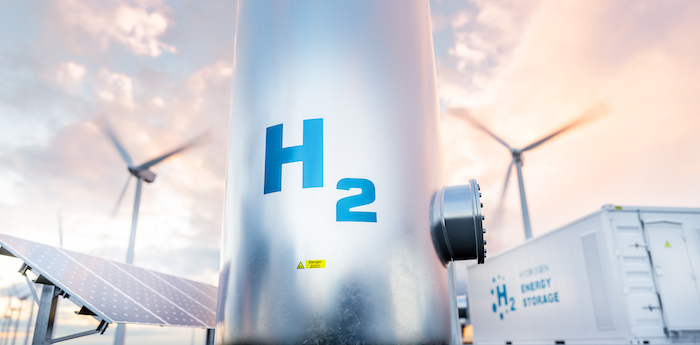Video clips to discover hydrogen technologies applied to heavy mobility
While the hydrogen industry has high hopes of accelerating the ecological transition, IFP School is offering, from 1 March to 15 April 2022 at midnight, a new training module called "Hydrogen for mobility".
"Today, it is imperative to combat climate change. Considering its energy density and the absence of associated greenhouse gas emissions, clean hydrogen is a solution to attenuate our impact on the planet," explains Maria Thirouard, project leader and lecturer at IFP School’s Powertrains and Sustainable Mobility center.
"We are at a crossroads, because at the European level, there is a political desire to develop this industry. In this module, we are going to study hydrogen technologies which will allow us to decarbonize heavy mobility," she adds.

Designed at the end of 2021 in collaboration with the LAB e·NOV™, El Hadj Miliani, lecturer at the Powertrains and Sustainable Mobility center and five IFP Energies nouvelles (IFPEN) researchers*, this module was originally offered as an elective course for apprentices and work-study students at IFP School as part of the personalized learning.
Completely free, the new online training module is intended for master’s level students (4 and/or 5 years of higher education), for professionals in the transport sector and anyone interested in hydrogen technologies in mobility.
Available in English and sub-titled in French, the module consists of 17 video clips (approximately 6 hours of learning) distributed over three major sequences.
The first presents the hydrogen production methods within the context of ecological transition. The focus is on the potential challenges and opportunities for deployment of hydrogen in the powertrains sector.
The second is dedicated to hydrogen internal combustion engines. It particularly concerns the chemical characteristics of hydrogen which influence the mixing, ignition, and combustion and the impact of these properties on the engine performance levels. The functioning of the engine and technological developments necessary for hydrogen combustion are also studied.
The third sequence concerns fuel cell vehicles. The different architectures of fuel cell vehicles are described, as well as those of an electric vehicle up to the batteries. The functioning of a fuel cell is then discussed, including the different types of available fuel cells. Lastly, calculations for the electrical work based on chemical energy, maximum voltage, yield and thermal losses are introduced.
"This is a different method of learning," notes Maria Thirouard. "The videos are truly “distilled knowledge”, ” she adds.
Moreover, the module offers virtual visits to the hydrogen engine test bench and the fuel cell test bench which are located at the IFPEN site in Solaize.
The participants had the opportunity to learn more about the concepts during a webinar organized on 24 March 2022 at 17:30 (Paris time) on Zoom. This was an opportunity to directly interact with IFPEN researchers and the IFP School team.
Three mini-games were used as tests. A badge was awarded to participants who had more than 60% of correct answers, attesting successful completion.
Registrations are open till April 15, 2022.
So off we go towards hydrogen mobility with IFP School!
*Florence Duffour (IFP School graduate, PPM 2005), Catherine Laroche, Pierre Leduc, Jules Sery (IFP School graduate, PWT 2019), Bruno Walter.
Article written by Meyling Siu